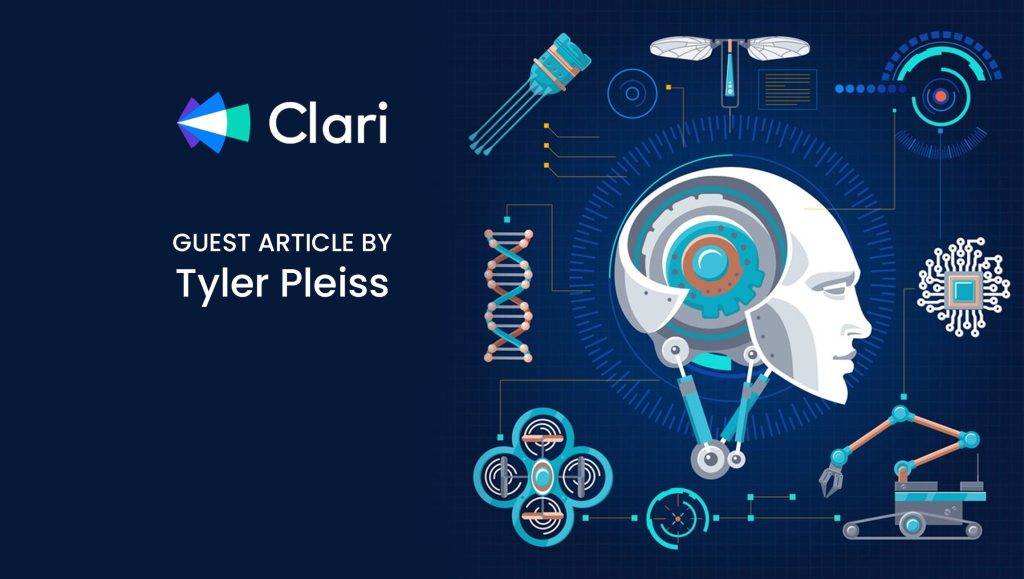The healthcare and life sciences sectors are currently navigating through a period of significant change, profoundly affecting how sales teams operate. A recent Clari-commissioned study by Fierce Healthcare sheds light on the primary challenges and priorities facing these teams.
When life sciences and healthcare sales leaders ranked their priorities, retaining and expanding existing accounts ranked first with 20% of respondents, followed by selling into new accounts at 19% and increasing sales productivity at 18%. Increased competition and the economy are keeping them up at night, as are abysmal conversion rates: a majority of executives reported that 20%-40% of deals aren’t closing. One quarter of executives reported even higher non-conversion rates.
According to the study — “The State of Sales in Healthcare and Life Sciences” — sales leaders are focused on finding ways to accelerate sales productivity and are looking to AI and automation within the next one to three years to drive gains.
Key findings include:
- Productivity Challenges. Sales leaders are putting a considerable focus on enhancing sales productivity, with 18% identifying this as a priority. However, 60% of executives report that their sales reps are bogged down by too much time spent on administrative tasks.
- Excessive Time on Non-Selling Activities. 60% of executives say their reps are spending too much time on administrative tasks like entering data into CRM systems. Approximately three out of four executives report that sellers are spending up to five hours a week on these tasks, with 26% spending even more time entering data vs. creating relationships and selling to doctors.
- Low Confidence in Sales Forecasts. Estimates of sales forecast accuracy varied widely between executives, but it was generally very low. 32% believe their forecasts are 50-75% accurate, and 27% believe their forecasts are 25-50% accurate. 12% rate their forecast accuracy at a woeful 20% or less.
- Hybrid Sales Models Predominate. A significant shift toward hybrid sales models is evident, with 83% of sales teams employing a combination of in-person and remote selling strategies.
- Omnichannel Approach for Engagement. An omnichannel strategy is widely used for client and prospect engagement, with email (98%), marketing campaigns (88%), and virtual meetings (87%) being the most popular channels.
- Collaborative Efforts Across Teams. Nearly all sales teams (approximately 80%) collaborate with marketing, the C-suite, and sales leadership during a typical sales cycle, emphasizing the importance of cross-functional teamwork.
- Four tactics are seen as most important for improving sales outcomes. The four tactics executives believe are most important for improving sales outcomes are collaboration across teams (67%), more accurate sales forecasts (42%), and improved data quality and sales coaching (tied at 38%).
- Automation and AI to the Rescue. One out of four executives reported that their sales organizations are currently using AI and/or data automation. Within the next three years, 67% of executives expect AI and/or automation sales technology to be implemented to drive data accuracy and sales productivity.
Where from here?
As with every other industry, sales leaders in healthcare and life sciences are focused on expanding and acquiring new accounts for growth. But unlike many other industries, healthcare and life sciences leaders have yet to fully adopt AI and automation to support their sales processes.
Leaders and reps today in the industry are still too reliant on archaic tools such as spreadsheets, CRM, and BI (I call this combo “the three-headed hydra”) to run their sales process. This leads to a lack of rep productivity due to too much time spent on manual tasks in CRM (a comprehensive 2023 survey by Salesforce of nearly 8,000 sales reps found reps spend only 28% of their week selling!), and a lack of pipeline visibility and poor forecasting due to bad data hygiene.
Also catch: Episode 179 of The SalesStar Podcast: The Impact of Al in Sales and Marketing with Ketan Karkhanis, EVP & GM, Sales Cloud, Salesforce
AI and automation present an opportunity to bring sales leaders in healthcare and life sciences into the modern selling era, where they can reap greater ROI from their CRM investments. For example, AI can be used to automatically capture all sales data into CRM, immediately improving rep productivity while ensuring higher quality, comprehensive data.
In addition, AI and automation that is built into the natural workflow of sales reps can dramatically boost productivity and revenue impact — with little or no training required. For example, instead of devoting hours to manually pouring through customer call transcripts, sales reps can now leverage AI to follow up on customer conversations with vastly greater speed, efficiency, and impact. AI can both identify critical aspects of customer conversations nearly instantaneously, and can then rapidly draft follow up emails and initiate campaigns, acting as a sales rep’s “digital chief of staff.”
In addition, with improved data hygiene and a combination of descriptive, predictive, and generative AI, forecasting becomes more accurate, slipped deals are reduced, and win rates rise.
Of the many challenges that healthcare and life sciences sellers face, most leaders believe increasing productivity and sales forecast accuracy are key priorities. Investments in AI and automation tools will help alleviate these challenges, improving sales reps’ productivity so they can spend more time engaging with clients and prospects and fostering growth in a competitive and rapidly evolving landscape.
**This online survey referred to in this article was sponsored by Clari in partnership with Fierce Healthcare. Research was conducted from September to December 2023, during which time 106 executives (database contacts from Questex, Fierce Healthcare’s parent company ) completed the survey. 106 executives completed the email survey.
Read More: SalesTechStar Interview with Eran Hollander, Chief Product Officer at HungerRush




















